|
A good night's sleep is essential for our overall well-being and productivity. However, many of us struggle to get the quality sleep we need. In this blog post, we will delve deeper into the topic of sleep masks and how they can help you achieve a restful sleep. We will discuss the benefits of using sleep masks, the science behind their effectiveness, and provide tips on choosing the right sleep mask for your needs. Additionally, we will share a link to Manta Sleep Masks, a brand that we endorse for their exceptional quality and comfort. Benefits of Sleep Masks: Sleep masks offer a range of benefits that can significantly improve the quality of your sleep. Firstly, they create a dark environment, blocking out any sources of light that may disrupt your sleep. This is particularly beneficial for those who live in urban areas or have partners who work late shifts. Additionally, sleep masks can help regulate your sleep-wake cycle by signaling to your brain that it's time to sleep. This is especially useful for individuals who struggle with irregular sleep patterns or jet lag. The Science Behind Sleep Masks: Sleep masks work by stimulating the production of melatonin, a hormone that regulates sleep. When your eyes are exposed to darkness, the pineal gland in your brain releases melatonin, signaling to your body that it's time to sleep. By wearing a sleep mask, you create a dark environment that enhances melatonin production, promoting a deeper and more restful sleep. Numerous studies have shown the positive effects of sleep masks on sleep quality and duration. Choosing the Right Sleep Mask: When selecting a sleep mask, it's important to consider your individual needs and preferences. Here are some factors to consider: 1. Comfort: Look for a sleep mask that is made from soft, breathable materials and has an adjustable strap to ensure a comfortable fit. 2. Light Blocking: Opt for a sleep mask that provides complete darkness by effectively blocking out light from all angles. 3. Size and Shape: Choose a sleep mask that fits the contours of your face without putting pressure on your eyes or nose. 4. Durability: Consider the quality and durability of the sleep mask to ensure it will last long-term. Manta Sleep Masks: The Ultimate Choice for Restful Sleep.
We are proud to endorse Manta Sleep Masks as the ultimate choice for achieving a restful sleep. Manta Sleep Masks are designed with the utmost comfort and functionality in mind. They feature a unique modular design that allows for a customizable fit, ensuring maximum comfort for all face shapes and sizes. The masks are made from premium materials that are soft, breathable, and hypoallergenic, ensuring a luxurious and irritation-free experience. In addition to their exceptional quality, Manta Sleep Masks also offer innovative features such as a 100% light-blocking design, adjustable eye cups to prevent pressure on the eyes, and a wide coverage area to block out all sources of light. With Manta Sleep Masks, you can enjoy a truly restful sleep, free from any disturbances. Conclusion: Sleep masks are a simple yet effective tool for achieving a restful sleep. By creating a dark environment and stimulating melatonin production, sleep masks can significantly improve the quality and duration of your sleep. When choosing a sleep mask, consider factors such as comfort, light-blocking capabilities, size, and durability. We highly recommend Manta Sleep Masks for their exceptional quality and comfort. To experience the benefits of Manta Sleep Masks for yourself, click here to visit their website Remember, a good night's sleep is essential for your overall well-being. Invest in a high-quality sleep mask and prioritize your sleep for a healthier and more productive life.
0 Comments
Obstructive Sleep apnea, a common yet potentially serious sleep disorder, is often associated with a multitude of health issues, including heart disease, stroke, and diabetes. However, the good news is that lifestyle changes, particularly in nutrition, and weight loss can significantly improve, and in some cases, completely eliminate this condition. At Elevation Health Solutions, we offer comprehensive health coaching and sleep testing services to guide you on your journey towards better sleep and overall health.
The Link Between Weight and Sleep Apnea Numerous studies have established a strong correlation between weight and sleep apnea. A study published in the American Journal of Respiratory and Critical Care Medicine found that a 10% weight gain predicted a six-fold increase in the odds of developing moderate to severe sleep apnea. Conversely, weight loss was associated with a significant decrease in sleep apnea severity. The reason behind this is simple: excess weight, particularly around the neck, can narrow your airway and increase the likelihood of sleep apnea. Therefore, losing weight can help widen your airways and improve your breathing while you sleep. The Power of Weight Loss and Lifestyle Intervention A recent study has shown the profound impact of an interdisciplinary weight loss and lifestyle intervention program on sleep apnea severity in men. The program, which included dietary changes, physical activity, and behavioral therapy, led to significant improvements in sleep apnea symptoms and sleep quality. These findings underscore the effectiveness of weight loss interventions in managing sleep apnea, reinforcing the importance of our comprehensive approach to health and wellness at Elevation Health Solutions. How Much Weight to Lose? The amount of weight loss needed to see improvements in sleep apnea varies from person to person. However, a study in the Archives of Internal Medicine suggests that even a modest weight loss of 10% can significantly reduce sleep apnea symptoms. It's important to remember that every pound lost contributes to the improvement of your sleep quality. The Role of Health Coaching in Lifestyle Change Changing one's lifestyle is easier said than done. This is where health coaching comes into play. At Elevation Health Solutions, our health coaches provide personalized guidance to help you make sustainable lifestyle changes. They can help you set realistic weight loss goals, develop a balanced diet, and create an exercise regimen that fits your needs and preferences. Health coaching is not just about weight loss. It's about empowering you to take charge of your health, providing you with the knowledge and skills to make informed decisions about your diet, physical activity, and overall lifestyle. The Importance of Ongoing Sleep Testing While lifestyle changes and weight loss can significantly improve sleep apnea, it's crucial to continuously monitor your condition. At Elevation Health Solutions, we offer comprehensive sleep testing services to assess the severity of your sleep apnea and track your progress. Regular sleep testing allows us to fine-tune your treatment plan, ensuring that it remains effective as your body changes. It also provides a tangible measure of your improvement, giving you the motivation to continue on your journey towards better health. Conclusion Sleep apnea is a serious condition, but it's not unbeatable. With lifestyle changes, particularly in nutrition, weight loss, and the right guidance, you can significantly improve your sleep quality and overall health. At Elevation Health Solutions, we're committed to helping you conquer sleep apnea and elevate your health to new heights. Remember, the journey towards better health is a marathon, not a sprint. It takes time, effort, and commitment. But with the right support, you can achieve your health goals and enjoy a good night's sleep. As we embark on a new year, it's the perfect time to prioritize our health and well-being. While exercise and nutrition often take center stage, we must not overlook the importance of sleep. Quality sleep is a vital pillar of overall health, alongside exercise and nutrition. It plays a crucial role in our recovery, daytime energy levels, and overall productivity. In this blog post, we will explore the significance of sleep and provide practical tips and suggestions to help you establish good sleep habits for a restful and rejuvenating new year.
The Importance of Sleep: Sleep is not just a period of rest; it is a fundamental process that allows our bodies and minds to recharge and repair. Here are a few reasons why sleep should be a top priority: 1. Physical Recovery: During sleep, our bodies undergo essential repairs and restoration. Adequate sleep promotes muscle growth, tissue repair, and the release of growth hormones, which are crucial for overall physical well-being. 2. Mental Clarity and Cognitive Function: Sleep plays a vital role in cognitive function, memory consolidation, and learning. It enhances our ability to focus, make decisions, and solve problems effectively. 3. Emotional Well-being: Lack of sleep can lead to increased irritability, mood swings, and decreased emotional resilience. Prioritizing sleep can significantly improve our emotional well-being and overall mental health. Tips for Establishing Good Sleep Habits: 1. Stick to a Consistent Sleep Schedule: Maintaining a regular sleep schedule helps regulate your body's internal clock. Aim to go to bed and wake up at the same time every day, even on weekends. This consistency will train your body to recognize when it's time to sleep and wake up, promoting better sleep quality. 2. Create a Sleep-Friendly Environment: Ensure your bedroom is a sanctuary for sleep. Keep it cool, dark, and quiet. Invest in a comfortable mattress, pillows, and bedding that suit your preferences. Consider using blackout curtains, earplugs, or a white noise machine to minimize disturbances. 3. Establish a Relaxing Bedtime Routine: Create a pre-sleep routine that signals to your body that it's time to wind down. Engage in calming activities such as reading a book, taking a warm bath, or practicing relaxation techniques like deep breathing or meditation. Avoid stimulating activities, such as using electronic devices or watching intense TV shows, close to bedtime. 4. Limit Exposure to Blue Light: The blue light emitted by electronic devices can disrupt your sleep-wake cycle. Minimize exposure to screens, such as smartphones, tablets, and laptops, at least an hour before bedtime. Consider using blue light filters or wearing blue light-blocking glasses if you must use electronic devices. 5. Avoid Stimulants and Heavy Meals: Caffeine and nicotine can interfere with your ability to fall asleep and stay asleep. Limit your consumption of these substances, especially in the afternoon and evening. Additionally, avoid heavy meals close to bedtime, as they can cause discomfort and disrupt sleep. 6. Engage in Regular Exercise: Regular physical activity can promote better sleep. Aim for at least 30 minutes of moderate-intensity exercise most days of the week. However, avoid exercising too close to bedtime, as it can increase alertness and make it harder to fall asleep. 7. Manage Stress and Worry: Stress and worry can significantly impact sleep quality. Prioritize stress management techniques such as practicing mindfulness, journaling, or engaging in relaxation exercises. Create a peaceful bedtime routine that allows you to unwind and let go of the day's stressors. 8. Seek Help from a Professional: If you have significant sleep concerns we encourage you to take our free online sleep assessment and schedule a home sleep test if indicated. Conclusion: As we embark on a new year, let's make sleep a priority in our quest for better health and well-being. By establishing good sleep habits, we can reap the countless benefits that quality sleep offers. Remember, consistency, a sleep-friendly environment, and a relaxing bedtime routine are key to achieving restful nights and energized days. Embrace the journey of improving your sleep habits, and may the new year bring you the gift of rejuvenating sleep and boundless energy. Remember, a well-rested mind and body are the foundations for a fulfilling and successful year ahead. Sweet dreams and happy sleeping! In the pursuit of our fitness goals, we often focus on pushing ourselves to the limit, constantly striving for improvement. While dedication and hard work are essential, it's equally important to recognize the significance of rest and recovery in our training programs. Incorporating adequate rest periods can have a profound impact on our overall performance, well-being, and long-term success. In this blog post, we will explore the benefits of rest and recovery, backed by scientific research, and provide you with the encouragement to prioritize these essential elements in your training routine.
1. Physical Benefits of Rest and Recovery: Rest and recovery play a crucial role in allowing our bodies to repair and rebuild. During intense workouts, our muscles undergo micro-tears, and rest periods provide the necessary time for these muscles to heal and grow stronger. Research has shown that incorporating rest days into your training program can lead to increased muscle strength, reduced risk of injury, and improved overall performance (1). Additionally, rest allows our bodies to replenish energy stores, regulate hormone levels, and optimize immune function, ensuring we are ready to tackle our next workout with full vigor. 2. Mental and Emotional Benefits of Rest and Recovery: Physical fatigue is not the only consequence of intense training. Mental and emotional exhaustion can also hinder our progress and well-being. Rest and recovery provide an opportunity to recharge mentally, reducing stress levels and preventing burnout. Studies have shown that adequate rest can improve cognitive function, enhance focus and concentration, and promote better sleep patterns (2). By incorporating rest into your training program, you can maintain a healthy balance between physical exertion and mental rejuvenation, leading to improved overall performance and a more positive mindset. 3. Strategies for Incorporating Rest and Recovery: Now that we understand the importance of rest and recovery, let's explore some strategies to help you incorporate these vital elements into your training program: a. Schedule Regular Rest Days: Plan dedicated rest days into your training schedule to allow your body and mind to recover fully. This could involve complete rest or engaging in low-intensity activities such as yoga or stretching. b. Listen to Your Body: Pay attention to your body's signals and adjust your training intensity accordingly. If you're feeling excessively fatigued or experiencing persistent muscle soreness, it may be a sign that you need more rest. c. Prioritize Sleep: Quality sleep is essential for optimal recovery. Aim for 7-9 hours of uninterrupted sleep each night to support muscle repair, hormone regulation, and overall well-being. d. Incorporate Active Recovery: On rest days, consider engaging in light activities such as walking, swimming, or cycling. These low-impact exercises can promote blood flow, aid in muscle recovery, and enhance overall mobility. Conclusion: Incorporating rest and recovery into your training program is not a sign of weakness but rather a strategic approach to unlocking your full potential. By allowing your body and mind to rest and rejuvenate, you can optimize your performance, reduce the risk of injury, and maintain a positive mindset throughout your fitness journey. Remember, progress is not solely determined by the intensity of your workouts but also by the quality of your recovery. So, embrace the power of rest and recovery, and watch as your fitness goals become more attainable than ever before. References: 1. Schoenfeld, B. J., & Krieger, J. (2017). The impact of rest duration on hypertrophic adaptations in resistance-trained men. Journal of Strength and Conditioning Research, 31(4), 840-847. 2. Samuels, C. (2008). Sleep, recovery, and performance: The new frontier in high-performance athletics. Neurologic Clinics, 26(1), 169-180. In our fast-paced lives, it's easy to overlook the importance of gratitude. However, cultivating gratitude can have profound effects on our overall health, well-being, and even our sleep quality. In this blog post, we will explore the remarkable benefits of gratitude, from its impact on our mental and physical health to its influence on our relationships, stress levels, and sleep patterns. Discover how embracing gratitude can transform your life and contribute to a more restful and rejuvenating sleep experience.
Gratitude and Mental Health: Practicing gratitude can enhance our mental resilience, helping us cope with stress, trauma, and adversity more effectively. It has also been linked to lower levels of depression and anxiety, shifting our mindset towards the positive aspects of life and improving our overall mental well-being. Gratitude and Physical Health: Expressing gratitude can have a positive impact on our physical health as well. It has been shown to boost our immune system, reduce inflammation, and lower the risk of heart disease. Grateful individuals often exhibit healthier behaviors, leading to increased longevity and overall well-being. Gratitude and Relationships: Gratitude strengthens our connections with others by fostering a sense of closeness and appreciation. It also increases empathy and compassion, creating more fulfilling and harmonious relationships. Gratitude and Stress Management: Practicing gratitude reduces stress levels and promotes relaxation. By shifting our attention away from stressors and focusing on the positive aspects of life, we can cultivate a more peaceful state of mind. Gratitude and Sleep Quality: Gratitude has a direct impact on our sleep patterns and overall sleep quality. By reducing stress and anxiety, expressing gratitude before bed helps relax the mind and prepare for sleep. Grateful individuals tend to experience longer sleep durations and report higher levels of sleep satisfaction. Practical Tips for Cultivating Gratitude: 1. Keep a Gratitude Journal: Write down three things you are grateful for each day, focusing on the small joys and blessings in your life. 2. Bedtime Gratitude Meditation: Practice a short gratitude meditation before sleep. Close your eyes, take deep breaths, and focus on the things you are grateful for. Visualize these blessings and let the feelings of gratitude wash over you, creating a sense of peace and tranquility. 3. Express Gratitude to Loved Ones: Take a moment to express your gratitude to your loved ones before bed. Share a heartfelt thank you or appreciation for something they did or simply for their presence in your life. This act of gratitude can deepen your connections and promote a sense of peace before sleep. Conclusion: Cultivating gratitude is a powerful tool that positively impacts our mental, physical, and emotional well-being. By embracing gratitude, we can enhance our mental resilience, improve our relationships, manage stress more effectively, and even experience better sleep quality. Incorporate gratitude practices into your daily routine, such as journaling, meditation, and expressing appreciation to loved ones. Embrace the power of gratitude and witness the transformative effects it has on your health, relationships, and sleep. Let gratitude guide you towards a more fulfilling and restful life. Have you ever wondered why you wake up feeling tired despite getting a full night's sleep? Or perhaps you struggle with excessive daytime sleepiness or loud snoring? If so, your doctor may recommend a sleep study to evaluate your sleep patterns and identify any underlying sleep disorders. In this blog post, we will explore the benefits of home sleep testing, including its convenience and affordability, as a solution for diagnosing sleep apnea.
Understanding the Importance of Sleep Studies: Sleep studies, also known as polysomnography, are diagnostic tests conducted in a sleep laboratory or sometimes in the comfort of your own home. These studies monitor various physiological parameters during sleep, such as brain activity, eye movements, heart rate, breathing patterns, and oxygen levels. By analyzing this data, sleep specialists can diagnose sleep disorders and develop appropriate treatment plans tailored to your specific needs. The Process of a Sleep Study: 1. Consultation: Before the sleep study, you will have a consultation with a sleep specialist who will discuss your symptoms, medical history, and any concerns you may have. This is an opportunity to ask questions and gain a better understanding of the procedure. 2. In-Lab Sleep Study: If you are scheduled for an in-lab sleep study, you will be asked to arrive at the sleep center in the evening. You will be provided with a private room resembling a comfortable hotel room. The sleep technologist will attach sensors to your body to monitor your sleep patterns throughout the night. 3. Home Sleep Test: Alternatively, your doctor may recommend a home sleep test. This involves using a portable device that you can set up and wear at home. The device will monitor your breathing, oxygen levels, and other relevant parameters while you sleep. Home sleep tests are often used to diagnose sleep apnea, a common sleep disorder. Benefits of Home Sleep Testing: 1. Convenience: Our business specializes in offering convenient home sleep testing options. With our FDA and AASM-approved kits, you can conduct the study in the comfort of your own home. This allows for a more relaxed and natural sleep environment, potentially leading to more accurate results. 2. Affordability: Home sleep testing is a cost-effective option compared to in-lab sleep studies. Our services are designed to be affordable and accessible, ensuring that individuals can receive a proper diagnosis without breaking the bank. 3. FDA and AASM Approval: Our home sleep testing options are approved by the FDA and the American Academy of Sleep Medicine (AASM). This ensures that our tests meet the highest standards of quality and accuracy, providing reliable results for sleep apnea diagnosis. 4. Privacy and Comfort: Conducting a sleep study at home allows for increased privacy and comfort. You can avoid the unfamiliar environment of a sleep lab, which can sometimes lead to anxiety or difficulty sleeping. By being in a familiar setting, you can relax and sleep more naturally, leading to more accurate results. Conclusion: If your doctor has recommended a sleep study, it is an important step towards understanding and addressing any sleep disorders that may be affecting your health and quality of life. By considering the convenience and affordability of home sleep testing, you can receive an accurate diagnosis for sleep apnea without the need for an in-lab study. Embrace the opportunity to prioritize your sleep and take control of your well-being. Remember, a good night's sleep is the foundation for a healthier and happier life. Explore our home sleep testing options today and start your journey towards better sleep and improved health. The Crucial Role of Sleep in Our Health Journey: Unveiling the Science Behind Optimal Well-being10/21/2023 In our fast-paced modern society, sleep is often overlooked or sacrificed in favor of work, social commitments, or other activities. However, understanding the importance of sleep and its impact on our health journey is paramount. In this blog post, we will delve into the stages of sleep, the influence of hormones, the risks of untreated sleep disorders, and how sleep affects weight loss, exercise, and recovery. Additionally, we will provide practical tips to optimize the quality of your sleep for an enhanced health journey. At Elevation Health Solutions, we specialize in sleep testing and lifestyle interventions, offering sleep apnea diagnosis and health coaching to improve sleep quality.
Stages of Sleep: Sleep is a complex process that consists of two main stages: rapid eye movement (REM) sleep and non-rapid eye movement (NREM) sleep. NREM sleep is further divided into three stages: N1, N2, and N3. Each stage plays a crucial role in various physiological and cognitive functions. During REM sleep, our brain is highly active, and this stage is associated with dreaming. REM sleep is essential for memory consolidation, learning, and emotional regulation. On the other hand, NREM sleep is responsible for physical restoration, growth, and repair. The N3 stage, also known as deep sleep, is particularly important for tissue repair, immune function, and hormone regulation. Hormones and Sleep: Sleep plays a vital role in regulating hormone levels, including those involved in appetite control, metabolism, and stress response. Two key hormones affected by sleep are leptin and ghrelin. Leptin, known as the "satiety hormone," signals to our brain that we are full and should stop eating. Lack of sleep can lead to decreased leptin levels, resulting in increased hunger and potential overeating. Conversely, ghrelin, the "hunger hormone," increases with sleep deprivation, leading to heightened appetite and cravings, particularly for high-calorie foods. Untreated Sleep Disorders and Weight: Sleep disorders such as insomnia and sleep apnea can significantly impact weight management. Insomnia, characterized by difficulty falling or staying asleep, can disrupt the delicate balance of hormones involved in appetite regulation, leading to weight gain or difficulty losing weight. Sleep apnea, a condition where breathing repeatedly stops and starts during sleep, can also contribute to weight gain. Sleep apnea disrupts sleep patterns, leading to fatigue and decreased physical activity. Moreover, it affects hormone regulation, increasing the risk of insulin resistance and metabolic dysfunction. Sleep and Weight Loss: Adequate sleep is crucial for successful weight loss. Sleep deprivation can hinder weight loss efforts by affecting metabolism, increasing cravings, and reducing motivation for physical activity. Additionally, lack of sleep can lead to muscle loss instead of fat loss, as the body tries to conserve energy. Exercise and Recovery: Sleep plays a vital role in exercise performance and recovery. During sleep, the body repairs and rebuilds tissues, replenishes energy stores, and strengthens the immune system. Insufficient sleep can impair exercise performance, decrease endurance, and prolong recovery time. Tips for Optimizing Sleep Quality: 1. Establish a consistent sleep schedule, aiming for 7-9 hours of sleep per night. 2. Create a sleep-friendly environment: a cool, dark, and quiet room. 3. Limit exposure to electronic devices before bed, as the blue light emitted can disrupt sleep. 4. Practice relaxation techniques such as meditation or deep breathing before sleep. 5. Avoid caffeine, nicotine, and alcohol close to bedtime, as they can interfere with sleep quality. At Elevation Health Solutions, we specialize in sleep testing and lifestyle interventions. Our expertise allows us to diagnose sleep apnea and provide effective health coaching to improve sleep quality. With our comprehensive approach, we aim to optimize your sleep and support your overall health journey. Conclusion: Sleep is a fundamental pillar of our health journey, influencing various aspects of our well-being. Understanding the stages of sleep, the impact of hormones, and the risks associated with untreated sleep disorders is crucial for optimizing weight management, exercise performance, and recovery. By prioritizing good quality sleep and implementing the provided tips, you can enhance your health journey and achieve optimal well-being. At Elevation Health Solutions, we specialize in sleep testing and lifestyle interventions, offering sleep apnea diagnosis and health coaching to improve sleep quality. Remember, a good night's sleep is not a luxury but a necessity for a healthier and happier life. References: 1. Spiegel K, et al. (2004). Impact of sleep debt on metabolic and endocrine function. The Lancet, 354(9188), 1435-1439. 2. Taheri S, et al. (2004). Short sleep duration is associated with reduced leptin, elevated ghrelin, and increased body mass index. PLoS Medicine, 1(3), e62. 3. St-Onge MP, et al. (2016). Sleep duration and quality: Impact on lifestyle behaviors and cardiometabolic health: A scientific statement from the American Heart Association. Circulation, 134(18), e367-e386. 4. Nedeltcheva AV, et al. (2010). Insufficient sleep undermines dietary efforts to reduce adiposity. Annals of Internal Medicine, 153(7), 435-441. 5. Fullagar HH, et al. (2015). Sleep and athletic performance: The effects of sleep loss on exercise performance, and physiological and cognitive responses to exercise. Sports Medicine, 45(2), 161-186. Traveling to different time zones can be an exciting adventure, but it can also disrupt our sleep patterns and leave us feeling groggy and fatigued. As someone currently experiencing the time difference between Atlanta and Denver, I understand the challenges firsthand. In this blog post, we will explore the common sleep challenges associated with travel and provide practical tips to help you get the best sleep possible, ensuring you feel refreshed and ready to make the most of your trip.
1. Understand Your New Time Zone: Upon arrival at your destination, adjust your mindset and activities to align with the local time. This means eating meals, engaging in activities, and going to bed according to the new time zone. By quickly adapting to the local schedule, your body will adjust more smoothly, minimizing the impact of the time change. 2. Gradually Adjust Your Sleep Schedule: If possible, start adjusting your sleep schedule a few days before your trip. Gradually shift your bedtime and wake-up time closer to the new time zone. For example, if you're traveling from Denver to Atlanta, start going to bed and waking up 15 minutes earlier each day leading up to your trip. This gradual adjustment will help your body acclimate to the time change more effectively. 3. Create a Sleep-Friendly Environment: Ensure your sleep environment is conducive to quality rest. Use blackout curtains or an eye mask to block out any unwanted light. Consider using earplugs or a white noise machine to drown out any disruptive sounds. Additionally, maintain a comfortable temperature in your room to promote better sleep. 4. Stick to a Bedtime Routine: Maintaining a consistent bedtime routine signals to your body that it's time to wind down and prepare for sleep. Engage in relaxing activities such as reading a book, taking a warm bath, or practicing deep breathing exercises. By establishing a routine, your body will recognize the cues and find it easier to fall asleep, even in a new environment. 5. Limit Exposure to Blue Light: Electronic devices emit blue light, which can interfere with your body's natural sleep-wake cycle. Minimize exposure to screens, such as smartphones, tablets, and laptops, at least an hour before bed. Instead, opt for activities that promote relaxation and prepare your mind for sleep. 6. Consider Melatonin: Melatonin is a hormone that helps regulate sleep-wake cycles. If you're struggling to adjust to the new time zone, consider taking a melatonin supplement before bed. Consult with a healthcare professional to determine the appropriate dosage and timing for your specific needs. Conclusion: Traveling to different time zones can present sleep challenges, but with a proactive approach, you can maintain sleep quality and make the most of your trip. By understanding the new time zone, gradually adjusting your sleep schedule, creating a sleep-friendly environment, sticking to a bedtime routine, limiting exposure to blue light, and considering melatonin, you can ensure a restful and rejuvenating sleep experience. So, whether you're in Atlanta, Denver, or any other destination, embrace these tips and enjoy a well-deserved night of quality sleep. Safe travels and sweet dreams! As I sit here sipping my third cup of coffee for the day, I can't help but think about my love-hate relationship with caffeine. On one hand, I can't function without it. On the other hand, I know it's not the healthiest habit to have especially for my sleep. But let's dive deeper into the world of caffeine and see what it's all about.
History of Caffeine Use Caffeine has been used for centuries in different parts of the world. The earliest recorded use of caffeine was in China in 2737 BC, where it was used as a tea. In the Middle East, coffee was first brewed in the 15th century, and it quickly spread to Europe and the rest of the world. Today, caffeine is consumed in various forms, including coffee, tea, energy drinks, and even chocolate. Health Benefits of Caffeine Caffeine has been shown to have several health benefits, especially in regards to fitness, nutrition, and metabolism. It can help improve athletic performance by increasing endurance and reducing fatigue. It can also boost metabolism and aid in weight loss. Additionally, caffeine has been linked to a reduced risk of several diseases, including Parkinson's, Alzheimer's, and liver disease. Caffeine Dosage and Timing The recommended daily caffeine intake for adults is 400mg, which is roughly equivalent to four cups of coffee. However, it's important to note that caffeine affects everyone differently, and some people may be more sensitive to it than others. It's also important to be mindful of when you consume caffeine, as it can affect your sleep. It's best to avoid caffeine in the late afternoon and evening to ensure a good night's rest. Negative Effects of Caffeine While caffeine has its benefits, it's important to be aware of its negative effects as well. Consuming too much caffeine can lead to jitters, anxiety, and even heart palpitations. It can also disrupt sleep, which can have a negative impact on overall health. If you're someone who struggles with sleep, it's best to avoid caffeine altogether or limit your intake to the morning hours. In conclusion, caffeine is a complex and fascinating substance that has been used for centuries. While it has its benefits, it's important to be mindful of its negative effects and consume it in moderation. As for me, I'll continue to enjoy my daily dose of caffeine, but I'll also make sure to listen to my body and know when it's time to cut back. Getting enough sunlight is essential for our overall health and well-being. While many of us are aware of the importance of protecting our skin from the sun's harmful rays, we may not realize the benefits of getting morning sun exposure. In this post, we'll explore the importance of getting morning sun for our health, including its impact on sleep, vitamin D, and circadian rhythm.
Morning sun and afternoon sun differ in terms of the type of light they emit. The sun emits different types of light, including visible light, ultraviolet (UV) light, and infrared (IR) light. The amount and type of light that we receive from the sun can vary depending on the time of day and the season. Morning sun is typically cooler and bluer in color, with a higher proportion of blue light. This type of light can help regulate our circadian rhythm and improve our mood and alertness. Blue light exposure in the morning can also help suppress melatonin production, which can help us feel more awake and alert during the day. Sleep: Exposure to natural light in the morning can help regulate our sleep-wake cycle. Our bodies are designed to be awake during the day and asleep at night, and exposure to sunlight in the morning can help reset our internal clock. This can lead to better sleep quality and improved daytime alertness. Vitamin D: Sunlight is a natural source of vitamin D, which is essential for bone health, immune function, and overall health. Vitamin D deficiency is common, especially in areas with limited sunlight exposure. Getting morning sun exposure can help boost vitamin D levels and improve overall health. Afternoon sun, on the other hand, is typically warmer and redder in color, with a higher proportion of red and orange light. This type of light can be more intense and can cause more damage to our skin and eyes. UV light exposure in the afternoon can increase the risk of skin damage and skin cancer, while IR light exposure can cause eye damage and discomfort. Circadian Rhythm: Our circadian rhythm is our body's internal clock, which regulates our sleep-wake cycle, hormone production, and other bodily functions. Exposure to natural light, especially in the morning, can help regulate our circadian rhythm and improve overall health. It's important to protect our skin and eyes from the harmful effects of UV and IR light, especially during peak sun hours in the afternoon. This can be done by wearing protective clothing, using sunscreen, and wearing sunglasses that block UV and IR light. In conclusion, getting morning sun exposure is essential for our overall health and well-being. It can improve sleep quality, boost vitamin D levels, and regulate our circadian rhythm. By being mindful of the type and amount of sunlight we receive, we can enjoy the benefits of sunlight while minimizing the risks. So, make sure to step outside and soak up some morning sun to start your day off right! |
AuthorDamian Solorzano is Health and Wellness Influencer, Respiratory Specialist and Health Coach who is passionate about optimizing personal health. Categories
All
Archives
March 2024
|
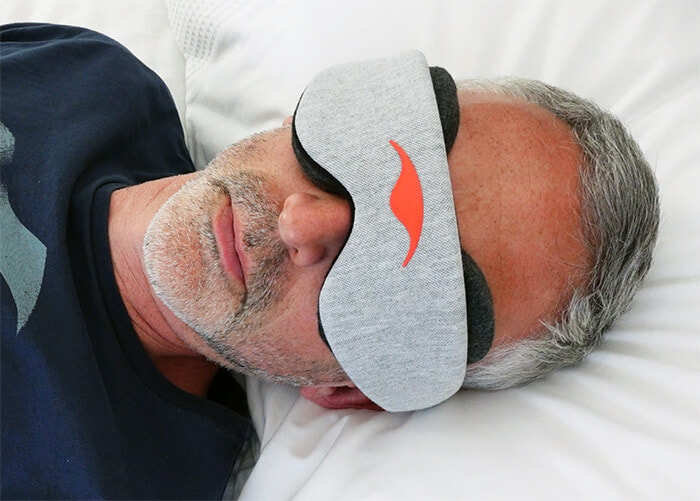



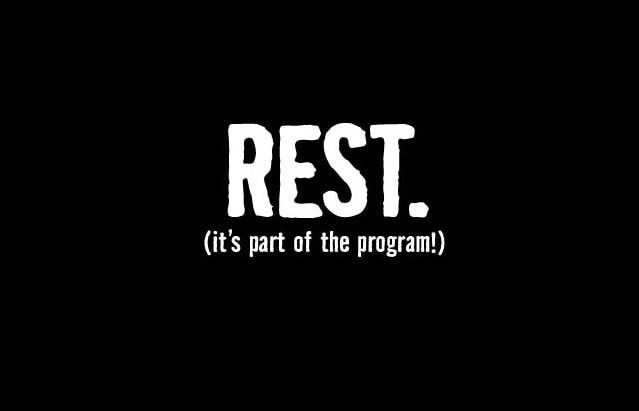

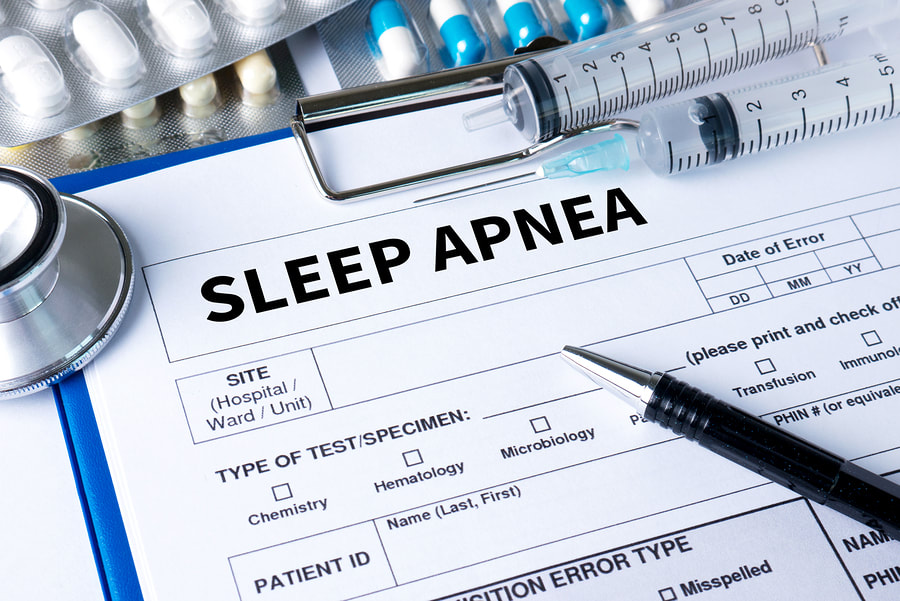
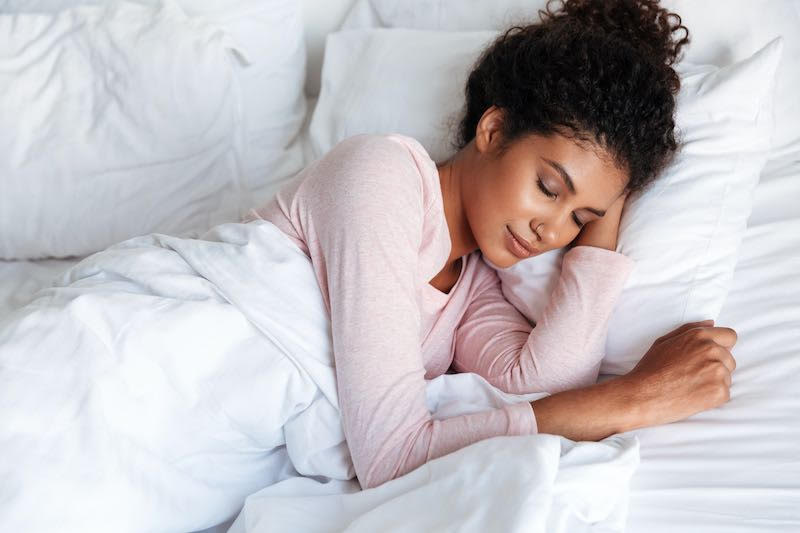
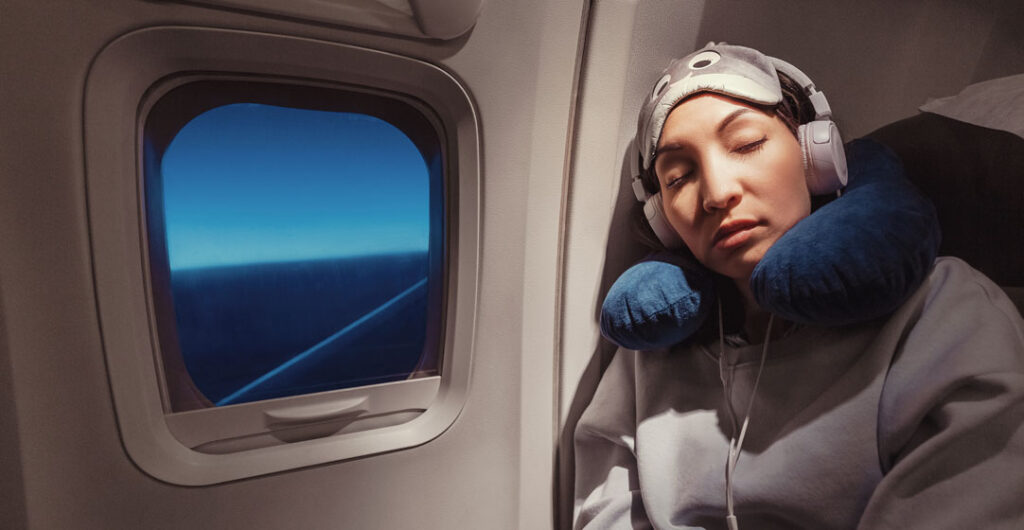


 RSS Feed
RSS Feed